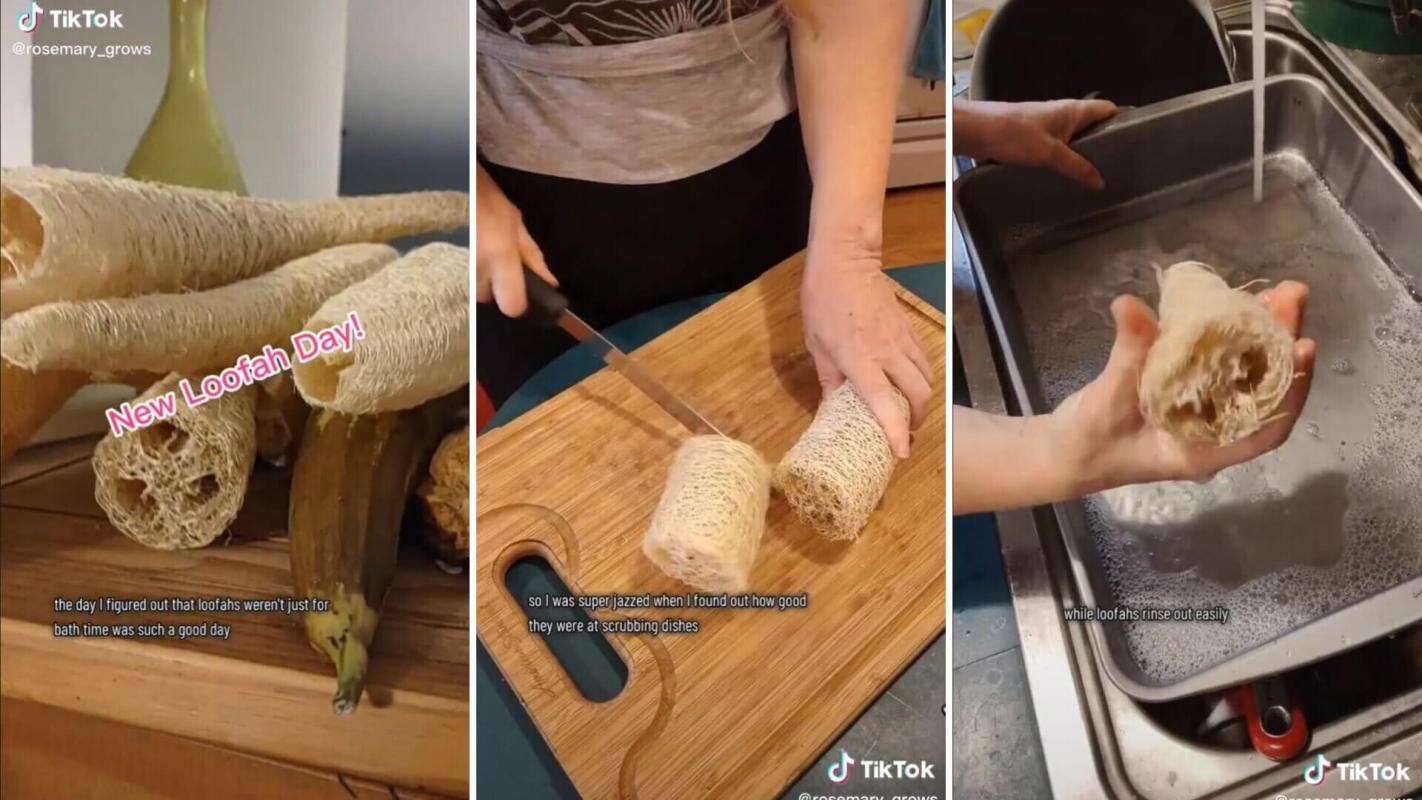One TikToker has captivated her followers with footage of a "ton" of loofahs she grew in her garden last year.
"The day I figured out that loofahs weren't just for bathtime was such a good day," says TikToker Rosemary (@rosemary_grows) in a video that has since been viewed over 245,000 times.
"I was super jazzed at discovering how good [loofahs] were at scrubbing dishes" especially because dish sponges "get so gross and end up in a landfill," she narrates while she picks loofahs from a vine, cuts them up, and uses them to scrub out a dirty kitchen pan.
"While loofahs rinse out easily, they dry out quickly, and are 100% compostable," she adds.
@rosemary_grows Loofah is one of the most versatile, drought tolerant, prolific plants you can grow in your garden! #fyp #garden #gardener #gardening #gardentok #gardeninghacks #gardening101 #sustainability ♬ Sensual Seduction - Snoop Dogg
Loofah (also spelled luffa) is a relative of the cucumber. Growing the tropical and subtropical vine sponges in your own yard has some major benefits. Aside from the initial cost of the plant or seed and the cost of inputs such as fertilizer, it will save you money in the long run.
A typical kitchen sponge can run about $3 a piece, and experts suggest replacing them about every two weeks at least. This adds up quickly, especially if you're using sponges for different tasks such as one for dishes, one for counters, and one for pet bowls.
Conventional kitchen sponges are also made from plastic, a leading contributor to ocean pollution and landfill waste. About 4.5% of carbon pollution is a direct result of plastic production. Sponges, especially poor-quality sponges, can also produce microplastics, which often wind up in our oceans and rivers, where animals eat them.
According to Rosemary, loofah is one of the most drought-tolerant plants you can grow, making it a great choice for a growing number of drought-afflicted regions across the globe.
People in the comments expressed appreciation for the insight.
"You just changed my entire view on Loofah!" one commenter writes. "I just love the idea of using it in the kitchen."
Another asks, "How do you dry them?" to which Rosemary replies, "I usually just let them sit on a rack until the husk is dry and then I peel them."
Want more? Follow The Cool Down on Instagram and join our Weekly Newsletter for cool stories and easy tips that save you money, time, and our planet.








